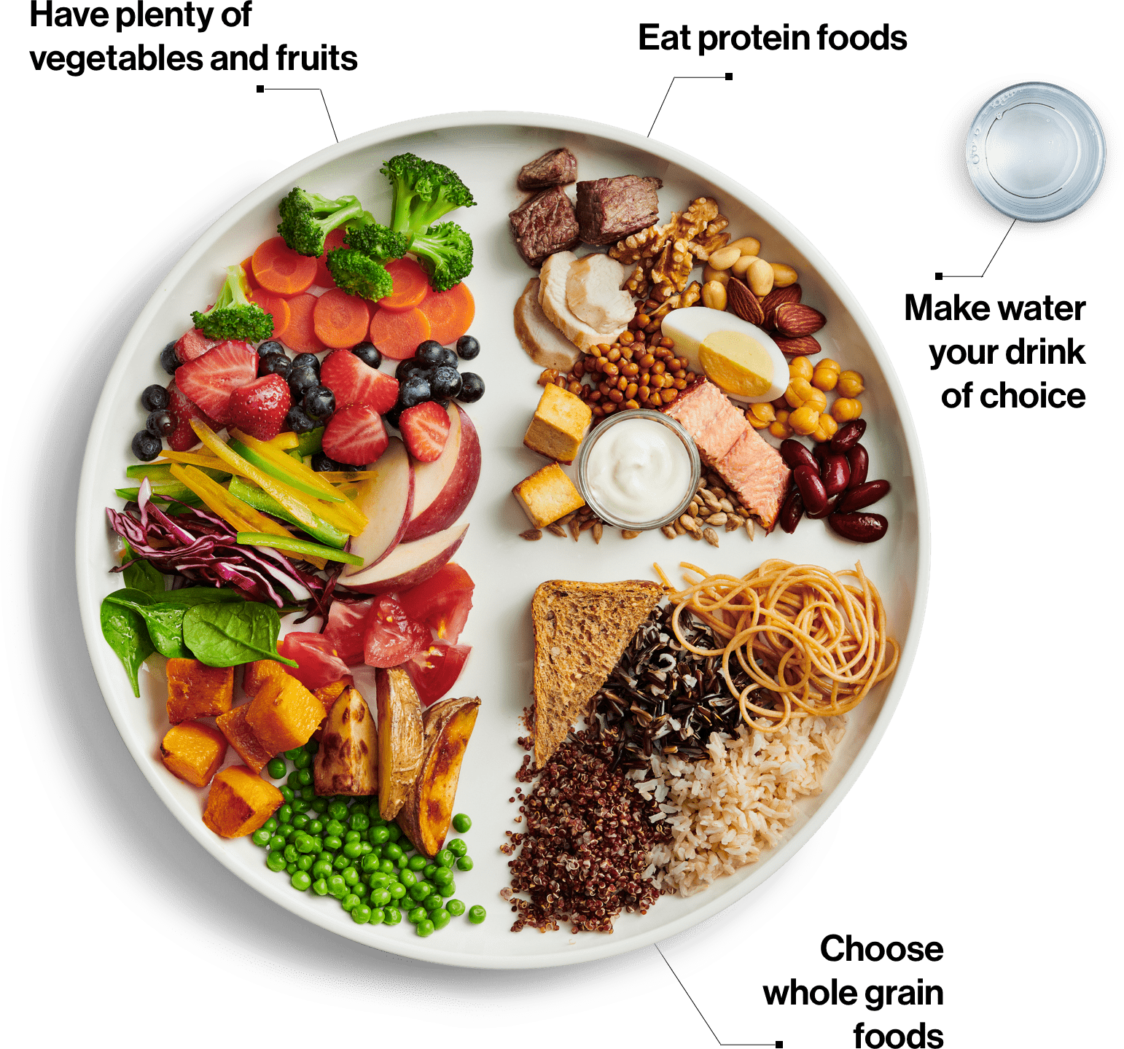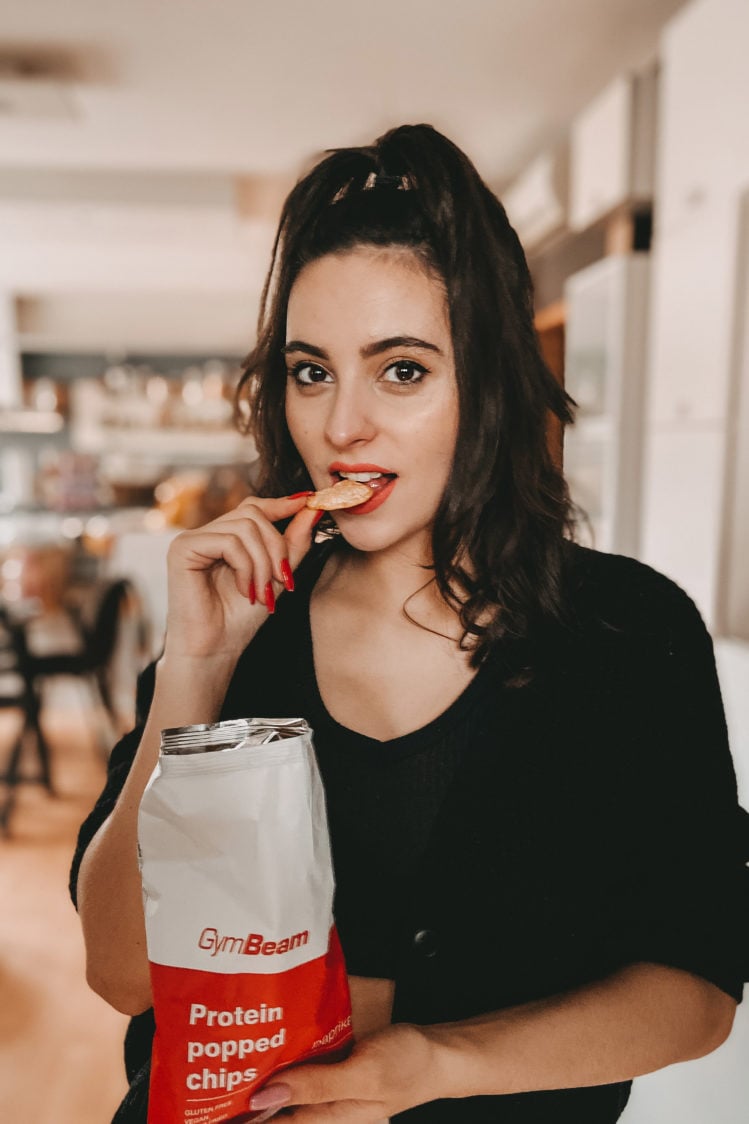Table of Contents
It is somehow perfectly natural to look for ways to simplify, make easier or ideally automate things, but there are limits to everything. Imagine what you would do if you wanted to lose weight in case you suddenly forget everything you knew about nutrition, training and a healthy lifestyle? Maybe, like most modern people, you’d just ask someone who has an answer to everything. And that someone would be none other than the omniscient Google, which will give you so much information that you can’t read it in seven lifetimes. However, because we like to make things easier, we click on instructions which will advise us on how to lose as much weight as quickly as possible, and the journey to hell begins.
If you are terrified that you have to undergo a detox in the form of drinking lemon juice with maple syrup, cayenne pepper and water known as the Master Cleanse program according to instructions, you then look for more and more guidelines and tips to find a satisfactory answer. After a few weeks of searching for the best diet, nutritional advice and exercise, you end up thinking that it’s all very complicated and that you can’t do it anyway because you’d have to eat gluten-free, dairy-free, sugar-free and ideally minimal carbohydrates or eat by keto dietary principles, and thus you’d only be able to eat organic foods. [1]
However, your body needs to detox, for example, when you get heavy metal poisoning or accidentally take a sip of a farm spraying product, but certainly not if you’re trying to lose weight. You don’t have to worry. Even without guaranteed “detoxes”, weight loss is ultimately no big deal. All you have to do is stop thinking of it as an insolvable integral from an insidious mathematics professor. [1–2]

Caloric deficit: Crowned king of successful weight loss
The caloric deficit is like Thanos’s Glove of Infinity, but don’t worry, you don’t have to fly around the universe looking for 6 stones of Infinity. For you have “all 6 stones of infinity” in your power already! All you have to do is bring them back to life and control them. You will only begin to lose weight if your energy output is greater than its intake. Sounds simple, doesn’t it? But just as there are many ways to Rome, there are better and worse ways to lose weight, of which you can sometimes give up. [3-5]
“Move more and eat less.” That’s probably pretty universal advice that people who want to lose weight hear from all sides. But what the hell does it mean? Should they have a smaller bag of chips, less fries, or a smaller spoonful of mayonnaise salad, a slice of dried salami, and at least occasionally get off the couch? Probably not, right? That’s about the kind of advice you get when you mention to someone that you want to become a professional athlete or build a house, and they advise you to train more or simply start building. It goes much better, and simply and far less complicated than you’d expect, and you don’t even have to go for instant diets that literally promise the moon, but usually, you end up with the well-known yo-yo effect.
And if you want to learn more about the secret of the caloric deficit and 10 tips on how to manage it, read our article Caloric Deficit: How to Lose Weight and Have a Life?

6 simple cornerstones of successful weight loss
The tools for successful weight loss are in your hands and are far more effective and sustainable in the long run than all sorts of instant diets, miraculous dietary supplements or diets, after which you will lose up to 10 kilograms of fat and have ripped abs without bothering to exercise.
It’s not that simple, is it? Below we present your 6 personal infinity stones, which will help you gain control of your lifestyle and personal universe. Don’t worry, you’ll end up far better than Thanos in the Avengers. (oops, spoiler alert).
- The fewer things you deal with, the more you can focus on what’s really important.
1. Don’t think of weight loss as a goal, but as a process of making the right everyday decisions that will lead you to weight loss

When you get on the train to a thinner, healthier, or sportier self, take the ride, enjoy the journey, and don’t think about the obligatory question of young children: “Are we there yet?” Instead of constantly weighing yourself and hoping for an ever lower weight and stressing about things not going as planned, try something else.
Instead, focus on what you can do extra to get closer to your goal. Focus on eating in most cases healthy food with enough vegetables and protein. Focus on how to spend as much time as possible actively every day and devote a moment to movement and exercise. Make it a priority to be stronger and healthier, not thinner. Simply focus on what you can do extra and not on what you can do less of.
Do not stress yourself with perfectionism and constant thoughts of losing weight, body weight, weighing yourself and choosing the least caloric meals and extra calories you consume. As a result, this can only lead to accusations and negative thoughts towards yourself.
If you focus on the individual steps that lead to the goal and not on the very result of your efforts in the form of the desired number on the scale, all will be much easier. Both mentally and physically.
After a while, you might wonder how the hell your clothes are looser whilst consuming more vegetables, protein, fibre, exercising, moving as much as possible during the day, and haven’t stressed about losing weight. Besides, weight doesn’t show the whole truth. When you stop dealing with the fact that in a week, two or a month you have to have lost 3 kilograms, and you start focusing more on the journey, you get the 1st infinity stone for successful weight loss. If you are interested in losing weight without dieting, read our article How and When to Eat Healthy to Lose Weight Without Dieting?
2. Forget dieting and eat according to what suits your specific needs
“Kill the diet!” This is not the name of a heavy metal band song, as it might seem. This is an invitation to stop putting your trust in weight loss into the hands of all sorts of diets or nutritional guidelines that are trendy and the best and healthiest in the world because they said so on Netflix. This is a dead end, an endless “diet wheel” and a dented self-confidence with each successive failed attempt. People generally don’t blame the diet itself for failure, but blame themselves, as happens with New Year’s weight loss resolutions, which in this case is unfounded. [6]
Diets in the vast majority of cases lead to short-term weight loss and have a yo-yo effect. Why? After reaching the target weight, one is already satisfied with their weight, and stop “dieting.” Subsequently, they return to their old lifestyle and begin to gain everything they have lost, thus as a result, nothing has changed about their long-term behaviour. And what’s worse? Eventually, they end up with more body fat than before the diet. [7–9]
It doesn’t matter if you are a fan of paleo, low-carb, keto, vegetarianism, veganism or RAW food. The basis of weight loss is a caloric deficit, and all possible dietary guidelines are only tools to achieve it. In addition, all nutritional guidelines have several common themes that are generally related to a healthy diet.
What do all nutritional guidelines have in common?
- They are based on as many fresh and minimally processed foods as possible thus known as “whole foods”.
- They emphasize sufficient intake of quality protein.
- They suggest integrating a lot of vegetables in the menu.
- Give preference to foods with a higher nutritional density, not energy density.
- Reduce the intake of highly industrially processed foods, which are also high in calories.
- It is recommended to eat slowly until you feel satisfied, not fully saturated.
- Suggest establishing a drinking water regimen, and it is recommended to avoid liquid calories.
Eat as much as you like. Make a decision and don’t change your behavior every two weeks. Spend the time you would otherwise spend looking for the best approach to eating. Simply eat a quality healthy diet packed with all the nutrients your body needs and keep your hands off junk food in the form of highly industrially processed foods or poorly understood flexible IIFYM diets.
If you are not certain whether your diet is good enough, you can start following the principles of a healthy diet. Once you have mastered the basic rules of food and eating what suits you specifically, the 2nd infinity stone is yours. In case you want to learn more about a healthy diet and understand the nutritional quality of food, read our article What Is a Healthy Diet and How to Learn to Eat Healthily?

3. Be aware of your weaknesses and learn how to work with them
“I’ll never eat chocolate, candy, chips, or drink alcohol again, and starting tomorrow I’ll start exercising twice a day and only eating healthily,” said someone who had hung in there for a while, and after a few days or maybe weeks had given up and stuffed themselves with chocolate, chips, and a bottle of wine.
When you have a favourite vice, you need to be aware of it, work with it, and “outsmart” yourself when you face your weakness. It’s the same as, for example, procrastination, you simply can’t stop it from one day to the next because it’s a habit you’ve been cultivating for a while, and you won’t want to give it up easily without a fight.

In case you can’t resist eating ______ (fill in your food “vice”) prepare the battlefield in your favour. How? Clean out your pantry so that you don’t have any “goodies” at home (or at least you don’t know about them) and don’t buy any more. For example, if you’re visiting someone, try a piece of what appeals to you, then wait a while and try curbing a never-ending craving with vegetables, chewing gum or have a drink that will leave you no longer in the mood for something delicious. If you have a food “vice” that you can’t resist but would like to change that, read our article How Is Snacking Holding You Back from Losing Weight? 11 Easy Ways to Get Food under Control.
What is the biggest stumbling block for all people who want to lose weight?
Weekend! During the week, people stick to their diets, sporting activities and thus create a caloric deficit of 3,000 kcal during the week. But as soon as they leave work on Friday, they kind of lose control, and during weekend parties and visits, due to the increased calorie intake, they consume all this extra energy they’ve been working so hard to get rid of during the week.
Do you recognize yourself in this? Then you need to develop a weekend strategy to help you not ruin your work over five-days in two days. Write down on paper what behaviour prevents you from achieving your goals over the weekend and the concrete steps you will take to prevent it from happening again.
Once you start taking into account your weaknesses and taking the appropriate steps, the 3rd infinity stone is yours. Are you interested in snacking and not gaining weight? Read our article 7 Tips on How to Snack and Not Gain Weight.
4. Failure is normal. The important thing is to go back, continue your journey and stay on course
What do you do if you fail a school exam, a job interview, a race or a match in your favourite sport? We’re all disappointed at first, then we start thinking about why it didn’t work out and what to do to make it work next time, and we move on. So why don’t people use the same approach when they’re losing weight? Unfortunately, they still mistakenly think that if they eat extra food, overeat in the evening or don’t exercise for a day, there’s no point in trying anymore, because everything is lost and weight loss is science fiction. Nothing is lost, the only difference is the few hundred extra calories you consumed, so move on.
It’s basically the same as going on a trip, going down apredetermined road, when you get lost for a while, but then you see the tourist signs again and you get back on track. Instead, try to accept your failure and learn from it. How do you feel after the weekend? What were the triggers that reined you in? Write it down, learn from your failure, and move on. It’s not about an all-or-nothing approach, it’s about consistency with natural fluctuations. When you learn to take failure as a challenge from which you can learn and move on, you are the proud owner of the 4th infinity stone. If you want to learn more about proper planning because you know that “If you fail to plan, you are planning to fail”, read our article Why Aren’t You Seeing the Results of Dieting and Working Out at the Gym? We’ll Advise You on How to Succeed.
You might be interested in these products:
5. Stop eating when you feel about 80% satiated

“Eat till half-full, drink till half-full,” a saying that aptly captures this issue. And why should you eat until you feel about 80% satiated? People generally don’t think much about how much food they eat, and most of the time they stop eating when they feel too full rather than satiated, and especially after a weekend lunch, they go and take “forty winks” on the couch.
When you start paying attention to your feelings while eating, you find that you really don’t need to eat everything on the plate. This may make you feel more energetic and fresh after lunch than before. How come? It takes about 15-20 minutes for your brain to evaluate through hormonal communication that you are already satiated and no longer need to eat.
The 80 % rule prevents overeating and a feeling of a lack of energy due to excessive indigestion. And what do you do if you’re still hungry 15-20 minutes after eating? Simply have a little more food or have a small snack to satisfy your hunger. If you can work with your hunger and its signals, The 5th infinity stone is in your hands. [10-12]
This rule applies not only to larger meals during the day, but also to smaller ones to ward off hunger. One might even not be able to avoid overeating by having inconspicuous snacks in the form of a sandwich. When choosing a snack and indeed any meal, beware of calorie bombs, which in small amounts contain large amounts of energy and sabotage your efforts to lose weight. Incase you are wondering how to prepare any snack appropriately, read our article What Should a Balanced Snack Contain and How to Replace Caloric Snacks in a Healthy Way?
6. Take regular action and don’t just think about your intentions
Thinking about things is great, but there’s a limit to everything, and this is doubly so when trying to lose weight. As we said in the beginning, you don’t need to spend all your free time searching for the best diet, detox, herbs or NZT pills to increase your brain capacity to become an invincible stock-market trader like Bradley Cooper in Limitless before he started singing and playing guitar in the blockbuster Star Is Born.
Nor is there any point in overthinking whether you should do split training based on Arnold Schwarzenegger or Ronnie Coleman’s routine, inspire by Sylvester Stallone style and train as the legendary Rocky or get in shape according to Jillian Michaels.
Choose your diet and training path according to your previous knowledge, familiarity and get into action every day in the form of, for example, a meal prep or a finished workout. Then spend some time on further education, which may take you a few percent further. Nobody but you can work it out for you, and why waste time thinking about questions you might find answers to on your way to a thinner self? Are you interested in more detail about the effectiveness of low-carbohydrate and low-fat diet for weight loss? Read our article Low-carb vs. Low-fat: What’s Better for Weight Loss?
By adopting the rules of an active life, where you do things instead of just talking about them, you gain the last 6th stone of infinity and full control over your life. Everything is in your hands and you don’t have to look for any miracle methods to lose weight. The infinity glove is yours, just learn to play with it.

Bonus tip: Be yourself
Do you have your fitness ideals? If they motivate you to work on yourself, that’s a good thing. In case you’re trying to imitate their diet, training schedule, or perhaps life, you’re headed for a dead end where sooner or later you’re going to hit a wall. Every person is original, so why try to be someone’s copy? Isn’t that a shame? We each have a slightly different body structure, such as long bones or robust joints, thus this has to be taken into account.
Instead of a number on a scale, focus on how you feel about yourself in your own body, how much energy you have during the day, how you sleep and how your clothes fit. These are far more valuable victories than having 0.45857 kg less. And don’t forget the STS rule. Haven’t you heard of it yet? Get your stress under control, sleep, and be patient. Hardening can also help with stress management and build a stronger immunity. If you are interested in this topic, read our article How to Get Stronger Immunity Thanks to Cold Water Therapy?

What is the lesson?
Weight loss is not nuclear science and there is no need to look for complexities in it. When you learn the basic and simple rules of weight loss in the form of your 6 personal infinity stones, as in the case of a full Thanos glove, you almost win. After that, all you have to do is keep working to better yourself and improve upon the quality of your diet, as well as to make your lifestyle more active.
Remember that weight loss is quite a demanding process at least from the point of view of the psyche and that the greatest talent required is a perseverance. If you keep moving in the right direction, even if you might slip occasionally, just get back on track and one day you’ll get to the finish line. All the tools to create a caloric deficit are in your power, so use them to your advantage.
What is the most important thing for you when losing weight? Share your experience, advice and tips for successful weight loss with us in the comments. If you liked the article, promote it by sharing it so that even your friends will know that weight loss is not nuclear science and everyone can do it with the right tools.
[1] Klein, A. V., & Kiat, H. – Detox diets for toxin elimination and weight management: A critical review of the evidence. – https://doi.org/10.1111/jhn.12286
[2] Grant, D. M. – Detoxification pathways in the liver. – https://doi.org/10.1007/BF01797915
[3] Hall, K. D. – What is the Required Energy Deficit per unit Weight Loss? – https://doi.org/10.1038/sj.ijo.0803720
[4] Romieu, I., Dossus, L., Barquera, S., Blottière, H. M., Franks, P. W., Gunter, M., Hwalla, N., Hursting, S. D., Leitzmann, M., Margetts, B., Nishida, C., Potischman, N., Seidell, J., Stepien, M., Wang, Y., Westerterp, K., Winichagoon, P., Wiseman, M., Willett, W. C., & IARC working group on Energy Balance and Obesity. – Energy balance and obesity: What are the main drivers? – https://doi.org/10.1007/s10552-017-0869-z
[5] Sacks, F. M., Bray, G. A., Carey, V. J., Smith, S. R., Ryan, D. H., Anton, S. D., McManus, K., Champagne, C. M., Bishop, L. M., Laranjo, N., Leboff, M. S., Rood, J. C., de Jonge, L., Greenway, F. L., Loria, C. M., Obarzanek, E., & Williamson, D. A. – Comparison of weight-loss diets with different compositions of fat, protein, and carbohydrates. – – https://doi.org/10.1056/NEJMoa0804748
[6] Kliff, S. – The science of actually keeping your New Year’s resolutions. – https://www.vox.com/2014/12/29/7434433/new-years-resolutions-psychology
[7] Dulloo, A. G., & Montani, J.-P. – Pathways from dieting to weight regain, to obesity and to the metabolic syndrome: An overview. – https://doi.org/10.1111/obr.12250
[8] Dulloo, A. G., Jacquet, J., Montani, J.-P., & Schutz, Y. – How dieting makes the lean fatter: From a perspective of body composition autoregulation through adipostats and proteinstats awaiting discovery. – https://doi.org/10.1111/obr.12253
[9] Mackie, G. M., Samocha-Bonet, D., & Tam, C. S. – Does weight cycling promote obesity and metabolic risk factors? Obesity Research & Clinical Practice, 11(2), 131–139. – https://doi.org/10.1016/j.orcp.2016.10.284
[10] John Berardi, PhD, CSCS, – Why ‘listen to your body’ and ‘do what works for you’ rarely work — and what to do instead. – https://www.precisionnutrition.com/listen-to-your-body
[11] Ryan Andrews, MS, MA, RD, RYT, CSCS, – About Appetite Regulation – https://www.precisionnutrition.com/all-about-appetite-2
[12] Austin, J., & Marks, D. – Hormonal Regulators of Appetite. – https://doi.org/10.1155/2009/141753

